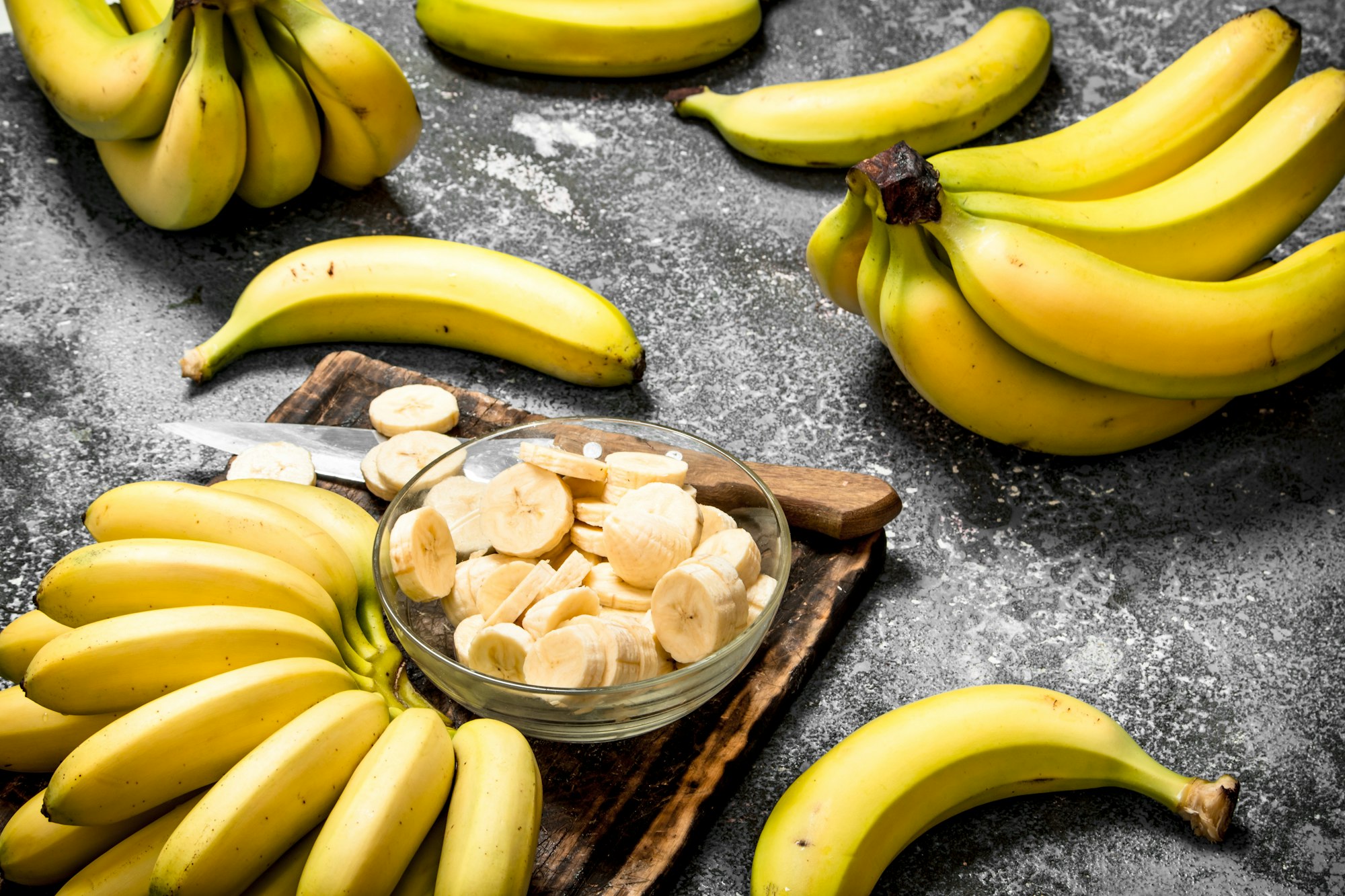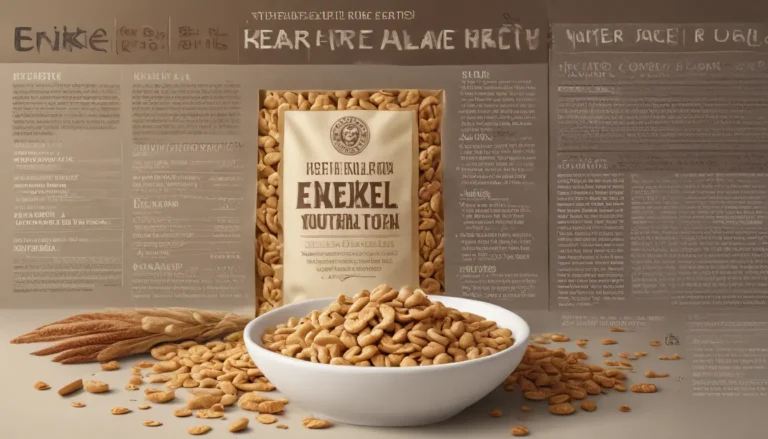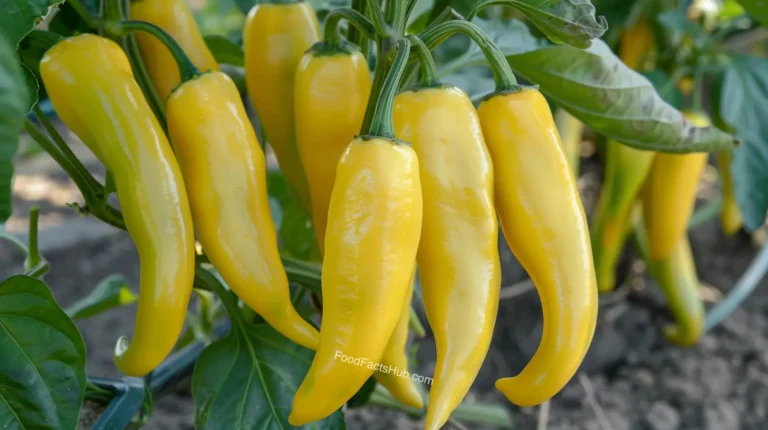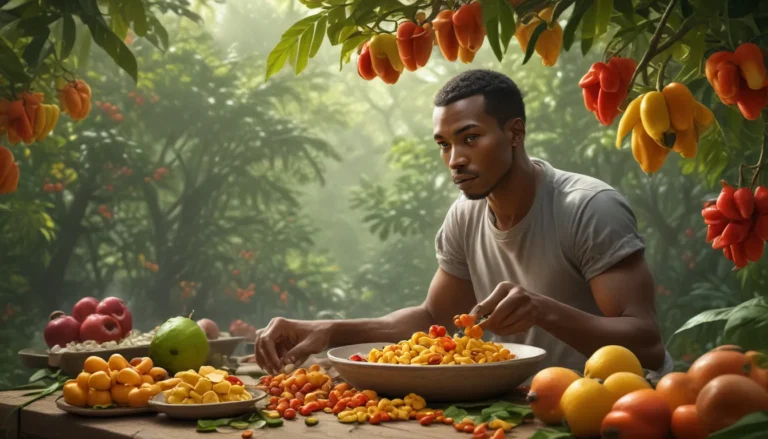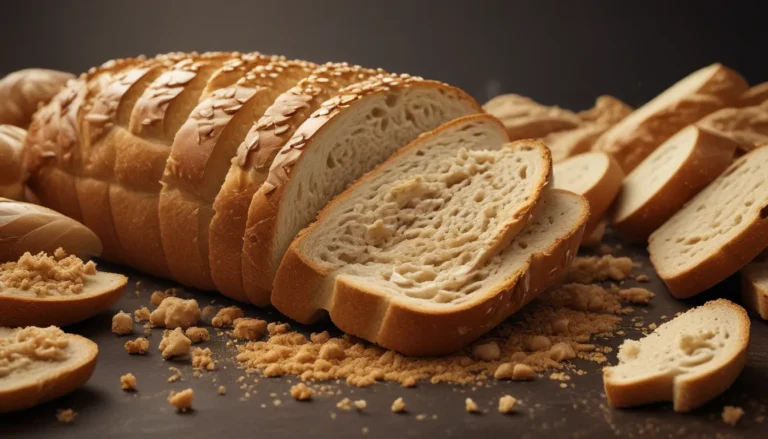The pictures in our articles might not always show exactly what the text is talking about. We use these images to make the article more interesting and eye-catching. They are there to add to the text, but not to replace it or show every detail.
Introduction
Bananas, those vibrant yellow fruits that grace our fruit bowls and add a sweet touch to our smoothies, have a story that's as rich and fascinating as their flavor. From their humble beginnings in Southeast Asia to becoming one of the world's most popular fruits, bananas have peeled their way into our hearts and diets. But there's more to these curved wonders than meets the eye. In this article, we'll explore some intriguing facts about bananas that will make you see this everyday fruit in a whole new light.
Whether you're a banana enthusiast or just curious about this ubiquitous fruit, prepare to be amazed by the wealth of information we're about to uncover. From their surprising botanical classification to their role in global economics, bananas have a lot more going for them than just being a convenient snack.
Key Takeaways
- Bananas are botanically berries and the world's largest herbaceous flowering plants
- They are packed with essential nutrients, including potassium, vitamin B6, and fiber
- Bananas have a rich history dating back over 10,000 years
- There are over 1,000 varieties of bananas worldwide
- Bananas are the 4th most grown crop globally and play a significant role in many economies
Fascinating Facts About Bananas
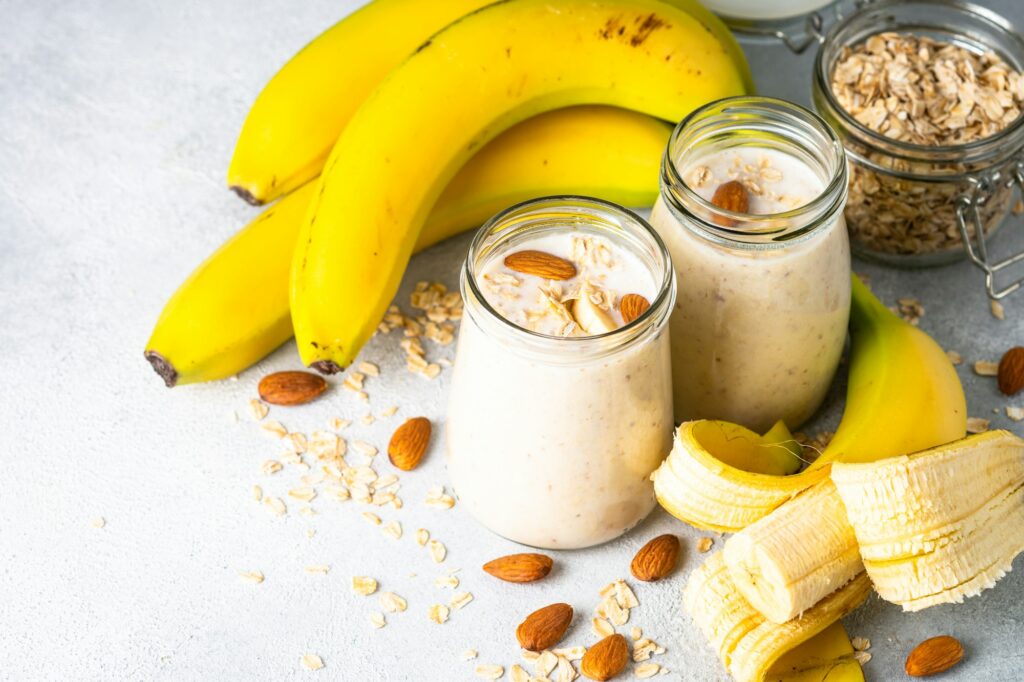
1. Botanical Surprise: Bananas Are Berries
Despite their appearance, bananas are technically classified as berries. This fact about bananas often surprises people, as we typically think of berries as small, round fruits. However, in botanical terms, a berry is a fruit that develops from a single flower and contains seeds. Bananas fit this description perfectly, even though their seeds are typically tiny and infertile in cultivated varieties.
2. Not a Tree, But a Giant Herb
Another surprising fact about bananas is that banana plants are not trees but the world's largest herbaceous flowering plants. What appears to be a trunk is actually a pseudostem made up of tightly packed leaf sheaths. This structure can grow up to 30 feet tall, giving the impression of a tree.
3. Clones of Each Other
Most commercially grown bananas are genetically identical clones. This fact about bananas highlights their unique reproduction method. Banana plants are grown from offshoots or "suckers" of existing plants, rather than from seeds. This ensures consistency in flavor and appearance but also makes banana crops vulnerable to diseases.
4. A Nutritional Powerhouse
Bananas are renowned for their nutritional value. A medium-sized banana contains about 105 calories and is packed with essential nutrients. Here's a quick breakdown:
| Nutrient | Amount per medium banana | % Daily Value |
|---|---|---|
| Potassium | 422 mg | 12% |
| Vitamin B6 | 0.4 mg | 25% |
| Vitamin C | 10.3 mg | 11% |
| Fiber | 3.1 g | 12% |
| Manganese | 0.3 mg | 14% |
This nutritional profile makes bananas an excellent choice for a quick, healthy snack.
5. Ancient Fruit with a Long History
Bananas have been cultivated for over 10,000 years, making them one of the oldest known cultivated fruits. This fact about bananas underscores their long-standing importance in human diet and culture. Originally from Southeast Asia, bananas spread to other tropical regions and were introduced to the Western world by explorers and traders.
6. Diverse Varieties
While most of us are familiar with the yellow Cavendish banana, there are actually over 1,000 varieties of bananas worldwide. This diversity includes bananas of various colors, sizes, and flavors, from the small, sweet ladyfinger bananas to the large, starchy plantains used in cooking.
7. Global Economic Importance
Bananas are the fourth most important food crop in the world, after rice, wheat, and corn. This fact about bananas highlights their significant role in global agriculture and economics. They are a crucial export for many tropical countries and a staple food for millions of people.
8. Natural Mood Booster
Bananas contain tryptophan, an amino acid that the body converts into serotonin, often referred to as the "happy hormone." This fact about bananas suggests that eating this fruit might help improve mood and reduce symptoms of depression.
9. Versatile Culinary Ingredient
Beyond being eaten raw, bananas are incredibly versatile in cooking. They can be baked, fried, mashed, or blended into smoothies. In many tropical regions, banana leaves are used for cooking and serving food, adding a subtle flavor to dishes.
10. Naturally Radioactive
Here's an unusual fact about bananas: they are slightly radioactive due to their potassium content. However, the level of radiation is extremely low and poses no health risk. In fact, you'd need to eat about 10 million bananas at once to suffer from radiation poisoning!
FAQ About Bananas
Are bananas good for weight loss?
Yes, bananas can be part of a healthy weight loss diet. They're low in calories but high in fiber, which can help you feel full.
Can diabetics eat bananas?
Diabetics can eat bananas in moderation as part of a balanced diet. They have a low to medium glycemic index, depending on their ripeness.
Are banana peels edible?
While not common in Western cultures, banana peels are edible and nutritious. They're often used in cooking in some parts of the world.
How should bananas be stored?
Bananas should be stored at room temperature. To slow ripening, keep them away from other fruits. To speed up ripening, place them in a paper bag with an apple.
Why do bananas turn brown?
Bananas turn brown due to an enzyme that reacts with oxygen, causing the fruit to produce melanin. This process is called enzymatic browning.
Conclusion
From their surprising botanical classification to their global economic importance, bananas are truly remarkable fruits. These facts about bananas reveal a complex and fascinating story behind this everyday food item. Whether you enjoy them as a quick snack, a smoothie ingredient, or a versatile cooking staple, bananas offer a wealth of nutritional benefits and culinary possibilities.
As we've discovered, bananas are more than just a convenient fruit. They're a testament to human agricultural innovation, a crucial part of many economies, and a nutritional powerhouse that continues to play a significant role in diets worldwide. The next time you peel a banana, take a moment to appreciate the rich history and incredible journey of this extraordinary fruit. With their unique blend of flavor, nutrition, and versatility, bananas truly deserve their place as one of the world's most beloved fruits.
